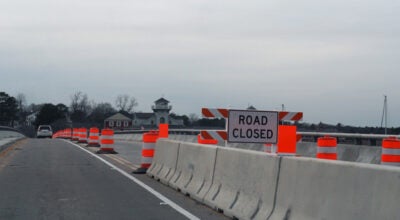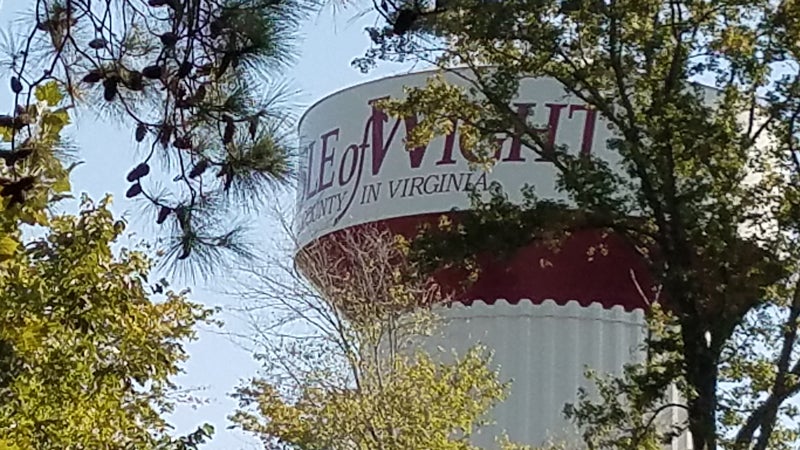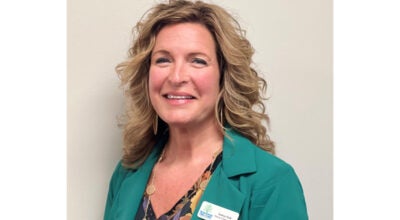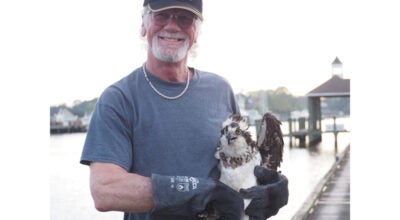Pfizer vaccine approved for children ages 5-11
Published 5:17 pm Tuesday, November 9, 2021
Pediatric doses of the Pfizer-BioNTech COVID-19 vaccine are on their way to Virginia, with 377,000 doses expected by Nov. 9.
The U.S. Centers for Disease Control and Prevention gave final clearance on Nov. 2 for the vaccine’s use in children ages 5-11, four days after the U.S. Food and Drug Administration granted emergency use authorization.
The pediatric vaccine is one-third of the adult dosage. The adult version received full FDA approval in August for ages 16 and up, and remains under emergency use authorization for ages 12-15. The pediatric and adult versions both require two doses administered at least 21 days apart.
The 377,000 pediatric doses should be enough to provide first doses to half of Virginia’s estimated 723,000 5- to 11-year-olds, according to state vaccination liaison Dr. Danny Avula, with additional doses set to arrive every week thereafter.
Speaking to the media in a Nov. 3 conference call, Avula said distribution of the doses will be weighted based on the demand seen among 12- to 15-year-olds over the past few months. Based on this metric, Northern Virginia is set to receive 40% of the first shipment.
Statewide, 35% will go to pharmacies, 7% will go to community vaccination centers, a small percentage will go to local health departments and between 50-60% will be prioritized for doctor’s offices. CVS Health announced on Nov. 3 that 55 of its Virginia pharmacies are currently accepting appointments for children ages 5-11, with shots going into arms starting Nov. 7.
Avula hopes that by distributing the majority of Virginia’s first pediatric doses through family doctors, parents — who will ultimately decide whether to vaccinate their children — will be less likely to be scared off by the potential side effects or misinformation.
The effects of the pediatric vaccine were “largely consistent with the side effects seen in older children, but less severe,” Avula said.
According to the FDA, cases of myocarditis — inflammation of the heart muscle — have occurred, especially in male adolescents and young adults, after injection with the Pfizer or Moderna shots, both of which are messenger RNA vaccines. But such cases are rare and often treatable.
“Vaccine-related myocarditis patients typically regain normal function in about 10 days,” said Dr. Brandy Darby of the VDH Office of Epidemiology, by email to The Smithfield Times on Nov. 4.
Myocarditis is far more common and severe after COVID-19 illness than after COVID-19 vaccination, Darby added. According to the CDC, from March 2020 through January 2021, patients with COVID-19 had nearly 16 times the risk for myocarditis compared with patients who did not have COVID-19, with risk varying by sex and age.
In pediatric patients, Darby said, myocarditis occurs mostly as a result of MIS-C, a rare but severe coronavirus-linked condition where many parts of the body can become inflamed. According to VDH data, there have been 104 cumulative MIS-C cases in Virginia since the coronavirus pandemic began. According to Darby, MIS-C occurs most commonly in children ages 5-11.
No MIS-C cases have occurred in the Western Tidewater Health District and none statewide have resulted in death, according to VDH data. But they typically require hospitalization and “not all patients regain normal function” following MIS-C-related myocarditis, Darby said.
“Most kids who get (COVID-19) are not going to get severe disease,” Avula said, but when the more contagious delta variant became the dominant coronavirus strain in Virginia earlier this year, the state saw “a five-fold increase in pediatric hospitalizations.”
Vaccination also has “practical benefits” for parents, Avula said, such as allowing them to keep their children in school when they would otherwise have to quarantine at home if contact tracing identifies them as having been exposed to someone who tests positive for COVID-19.
Isle of Wight County Schools sent a survey to parents on Nov. 2 to gauge interest in an in-school vaccination clinic for students ages 5-11. The survey closed the evening of Nov. 4.
“We will be working with Isle of Wight emergency services and other partners once we have the data from that survey on how to move forward,” said IWCS spokeswoman Lynn Briggs.





